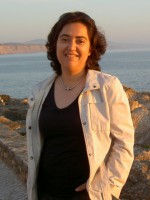abstract
Comprehensive two-dimensional liquid chromatography (LCxLC) coupled with a diode array detector (DAD) has been used for the first time to investigate chemical heterogeneity and map the hydrophobicity versus molecular weight distribution of the most hydrophobic acid fractions in water-soluble organic matter (WSOM) from fine atmospheric aerosols collected over different seasons at a urban location. The use of LCxLC-DAD, combining the use of two independent separation mechanisms (per aqueous liquid chromatography [PALC] versus size-exclusion chromatography [SEC]), has shown a great potential for unraveling and resolving the heterogeneity of WSOM, further providing a deeper insight into how size-distinguished aerosol WSOM fractions differ in hydrophobicity during different seasonal events. The combination of PALCxSEC-DAD data with an already proposed data treatment procedure revealed that the WSOM samples collected during warm seasons are enriched in aliphatic structures, while those collected during colder seasons exhibit a higher degree of structures with conjugation of pi-bonds (e.g., aromatics) alongside aliphatic structures. Copyright 2015 American Association for Aerosol Research
keywords
MAGNETIC-RESONANCE-SPECTROSCOPY; AQUATIC HUMIC SUBSTANCES; ATMOSPHERIC AEROSOLS; MASS-SPECTROMETRY; CLIMATE; HEALTH; CARBON
subject category
Engineering; Environmental Sciences & Ecology; Meteorology & Atmospheric Sciences
authors
Matos, JTV; Freire, SMSC; Duarte, RMBO; Duarte, AC
our authors
Groups
acknowledgements
This work was supported by the Centre for Environmental and Marine Studies (PEsT-c/MAR/LA0017/2013, University of Aveiro, Portugal) and the Portuguese Science and Technology Foundation (FCT), through the European Social Fund (ESF) and


